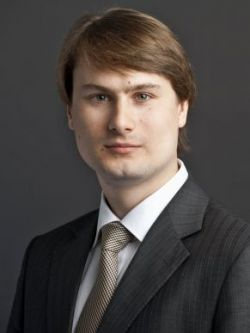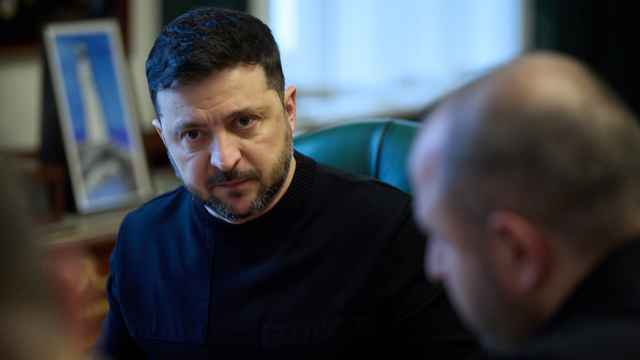
Nikolay Voznesenskiy
Head of Competition & Antitrust Practice
Goltsblat BLP
Almost from the time the Second Anti-Monopoly Package came into force on Aug. 23, 2009, the Russian Federal Anti-Monopoly Service (FAS) embarked on developing further amendments to the Russian antitrust law. The general idea imparted by this is that the second package was originally imperfect, owing to the tight time frame assigned for its adoption. Another reason for developing the so-called Third Anti-Monopoly Package was Russia launching negotiations on acceding to the Organization for Economic Cooperation and Development (OECD).
These efforts resulted in the Bill "On Amendments to the Federal Law 'On Protection of Competition'" and Certain Other Legislative Acts of the Russian Federation" (the Bill) passed by the State Duma in the first reading in September 2011.
It appears that a number of the proposed amendments will directly affect the majority of participants on the Russian market. Let us take a close look at some of them.
1. Monopoly high prices
Russian competition authorities often referred to exchange quotations and indexes as fair price criteria. Practice showed, however, that the current price on a commodity exchange does not always result from a balance of supply and demand and might be artificially overstated as a result of speculation by players. The Bill establishes that an exchange quotation is not deemed monopoly high if a number of conditions are satisfied simultaneously, such as requirements on the volume of the commodity, specific procedure for deals, regularity and steadiness of sales on the exchange, scope of the exchange lot, etc. So dominating companies not trading on the exchange themselves are provided with a legal opportunity to check themselves against relevant markets for assessing their own risks, on the one hand, and against international and foreign stock exchange and OTC indexes on the other.
2. Concerted practices

Andrey Neminuschiy
Associate, M&A / Competition
Goltsblat BLP
Distinguishing between competing companies' parallel actions and concerted practices is a difficult task from the perspective of Russian law and practice. The former do not amount to inappropriate conduct and the latter are considered monopolistic operations. Distinguishing between the two is difficult because the effective legislation allows concerted practices to be proved even if there is no agreement or exchange of information between the competitors. Simultaneity and uniformity of these actions may serve as proof that they are concerted.
The Bill strives to create more certainty in this respect. As per the Bill, concerted practices are those that follow a public statement made on their performance by any one of the participating companies. If an economic entity announces a price increase starting from Jan. 1 next year in order to encourage others to implement a price increase as well, a subsequent parallel action by several market players would be deemed concerted. Since this criterion is specified in the Bill, we recommend that representatives of corporate entities think very carefully about the contents of their statements made in the presence of the press, during meetings of industry associations or elsewhere when these statements might become public.
On the other hand, it should be stated that, among other things, as a result of these amendments, the FAS is entitled to issue warnings on unacceptability of competition-related violations to businesses making public statements. Given reasonable and timely exercise of this right by the FAS, this might prevent quite a number of antitrust violations, including ones pertaining to concerted practices. For instance, the FAS might warn companies against acting on the assumption of an unavoidable price hike made publicly by an entity.
Also, a prominent amendment triggered by a series of high-profile anti-monopoly cases in the oil industry is exemption of arrangements/concerted practices taken within a group from the prohibitions imposed by the anti-monopoly legislation. This is quite appropriate from the economic viewpoint, since a group constitutes a single economic agent, competition within it being easily restricted by legal instruments.
What is questionable, however, is that the group of companies is defined by the law in two different variants. One definition is used to describe the group for anti-monopoly control over M&A transactions. This type of group is broader and takes into account more types of connections between companies, for example, a contract between two companies allowing one of them to control the other. Another definition of group is used to define the exemption for intragroup arrangements/concerted practices. This type of group is smaller and includes only companies under direct control of another company due to its participation in the charter capital of the subsidiary. If we believe that the group of companies is a single "economic entity" with no competition within the group, we should choose on and the same approach to definition of the group whatever we use it for in anti-monopoly legislation.
3. Intellectual property rights
Another development that could be expected is that the use of intellectual products will no longer be covered by antitrust prohibitions. Intellectual products are owned exclusively by the right holder, and its refusal to provide them to anyone or, on the contrary, provision under an exclusive license may not, inherently, constitute a violation of anti-monopoly laws.
It should be noted, however, that there have been suggestions that these amendments be removed from the Bill. We believe this approach to be incorrect, since consistent protection of IP rights is an essential condition for investments into Russia, modernization of our manufacturing capabilities and innovative development. Part 4 of the Russian Civil Code drawn up on the basis of international conventions on protection of intellectual products provides for the right holder's exclusive rights to intellectual products. The holder of an exclusive right is entitled, at its own discretion, to prohibit other persons from using the intellectual product. The exclusive right is thus monopolistic by nature.
This approach has found its way into the legal position of the Constitutional Court of the Russian Federation that defined the status of a holder of an exclusive right as the owner of a legal monopoly with regard to the rights to its intellectual products.
We are aware of isolated instances when parties to distribution agreements have attempted to justify restrictions on sale of goods by the effect of IP rights used in producing the goods. This is not, however, the same thing. The courts consistently distinguish between distribution of goods and disposal of rights to patents, trademarks and works of authorship. This is based on Civil Code Article 1227, which establishes that the ownership to goods and its transfer to another person is not connected to the ownership to intellectual property rights used to create those goods. One should not fear to confuse these concepts in the future. For this reason there is no sense in eliminating special legislative provisions protecting free disposal of intellectual property rights by authors, patent holders and so on. Such provisions must be maintained in the law.
4. Joint ventures
Of great importance is the attempt made in the Bill to define admissible instances of competition restriction upon setup of joint ventures and conclusion of shareholder agreements. Parties involved in joint investments in manufacture or sale of goods and often contributing their business ties, know-how and clientele to the joint venture may be unable to derive any profit from the project if a partner competes with the joint venture. Such competition would make the entire project nonsensical. At the same time, if a project is implemented by competing companies, any agreements on restraining competition between them are formally banned by the antitrust legislation. In this respect, it is very important that the Bill specify exceptions for such agreements, provided, however, that their implementation covers real investments in production or sales of goods in Russia and provides consumers with commensurate advantages.
5. Vertical agreements
A number of amendments deal with so-called "vertical" agreements, i.e., those that are made between business entities operating at different levels of the goods production and sales chain, such as agreements between manufacturers and distributors or wholesale distributors and retailers, or component suppliers and plants manufacturing end consumer goods.
For these, it is planned to permit agreement on a maximum goods resale price, now virtually forbidden in most cases. In most cases, the clause regarding the maximum goods resale price is needed for the price reduction at the manufacturer's level to reach consumers rather than to increase the agent's margin. This regulation of prices for goods might allow manufacturers to position their goods on the market more accurately, for instance, as goods to be sold in the economy segment. Yet it should not be forgotten that the restrictions on a lowest (minimum) resale price still remain outlawed.
6. Tender procedure
The second set of amendments focuses on the description in the Bill of the manner in which the FAS is to consider complaints lodged in connection with violations of the tender procedure. If any such complaint is accepted by the FAS, the tender is suspended and the relevant contract may not be concluded. Furthermore, the Bill stipulates definitively that, if the complaint is satisfied, the Russian FAS may issue an instruction to eliminate relevant violations, to conclude a contract and to take other requisite steps.
7. Economic concentration
Having analyzed the amendments proposed by the Bill in connection with exercise of control over economic concentration, we would like to point out a number of key changes.
The Bill generally lists transactions subject to state control, these covering, inter alia, transactions to be agreed with respect to a foreign company that supplied goods to the Russian Federation for at least 1 billion rubles in the year preceding that of the transaction. This has been practiced by default but without any legal basis.
Another important innovation covers the need for agreeing transactions with respect to nonprofit organizations. Yet we believe that this requirement, even if only included in the Bill without detailed or additional regulation, will, in practice, prompt many questions.
Furthermore, the Bill raises the threshold for mergers and acquisitions from 3 and 6 to 7 and 10 billion rubles, respectively, and specifies additional circumstances under which this agreement is required: for instance, when a financial organization is absorbed by a commercial (nonfinancial) one or vice versa.
8. Reconsideration of cases
We believe that one of the most important changes covering procedural aspects of consideration of antitrust cases is that an opportunity is provided for these cases and pertinent rulings to be reconsidered on the basis of new and newly discovered circumstances, if a relevant application is filed by any party to the case or initiated by the case committee.
The application should be submitted within three months of the given party becoming aware of said circumstances. Furthermore, cases may be reconsidered on the basis of circumstances that neither were nor could be known when the verdict was announced, or if any evidence was forged.
We believe that this innovation favors the antitrust authority, which may, inter alia, chooses to review decisions declaring the defendant's actions to be in compliance with the legislation of the Russian Federation if it receives additional information in the future.
9. Liability
Having analyzed the proposals on amending the Сode of Administrative Offenses of the Russian Federation, we need to stress that they establish more formal fine determination criteria. The antitrust authority determines a fine of 1 to 15 percent of the violator's annual earnings by using its own rules and at its sole discretion. The Bill proposes a list of mitigating and aggravating circumstances, each either reducing or increasing the fine, this being calculated from the average fine level.
Another important proposal covers the fine for manipulating tender prices, which is to be calculated in multiples of the original (maximum) price of the tendered item.
Summing up the above, we would like to stress that, in general, the Bill does not result in the regulation being either significantly eased or hardened. The antitrust authority's purpose has obviously been to legalize the trends that have emerged over the years of the law's application. At the same time, we cannot but point out that certain innovations embedded in the Bill need to be discussed by professionals in great detail. For the Bill to look to the future rather than being a mere statement of individual casuistical decisions suggested by practice, it must be discussed by a broad range of professionals.
A Message from The Moscow Times:
Dear readers,
We are facing unprecedented challenges. Russia's Prosecutor General's Office has designated The Moscow Times as an "undesirable" organization, criminalizing our work and putting our staff at risk of prosecution. This follows our earlier unjust labeling as a "foreign agent."
These actions are direct attempts to silence independent journalism in Russia. The authorities claim our work "discredits the decisions of the Russian leadership." We see things differently: we strive to provide accurate, unbiased reporting on Russia.
We, the journalists of The Moscow Times, refuse to be silenced. But to continue our work, we need your help.
Your support, no matter how small, makes a world of difference. If you can, please support us monthly starting from just $2. It's quick to set up, and every contribution makes a significant impact.
By supporting The Moscow Times, you're defending open, independent journalism in the face of repression. Thank you for standing with us.
Remind me later.





